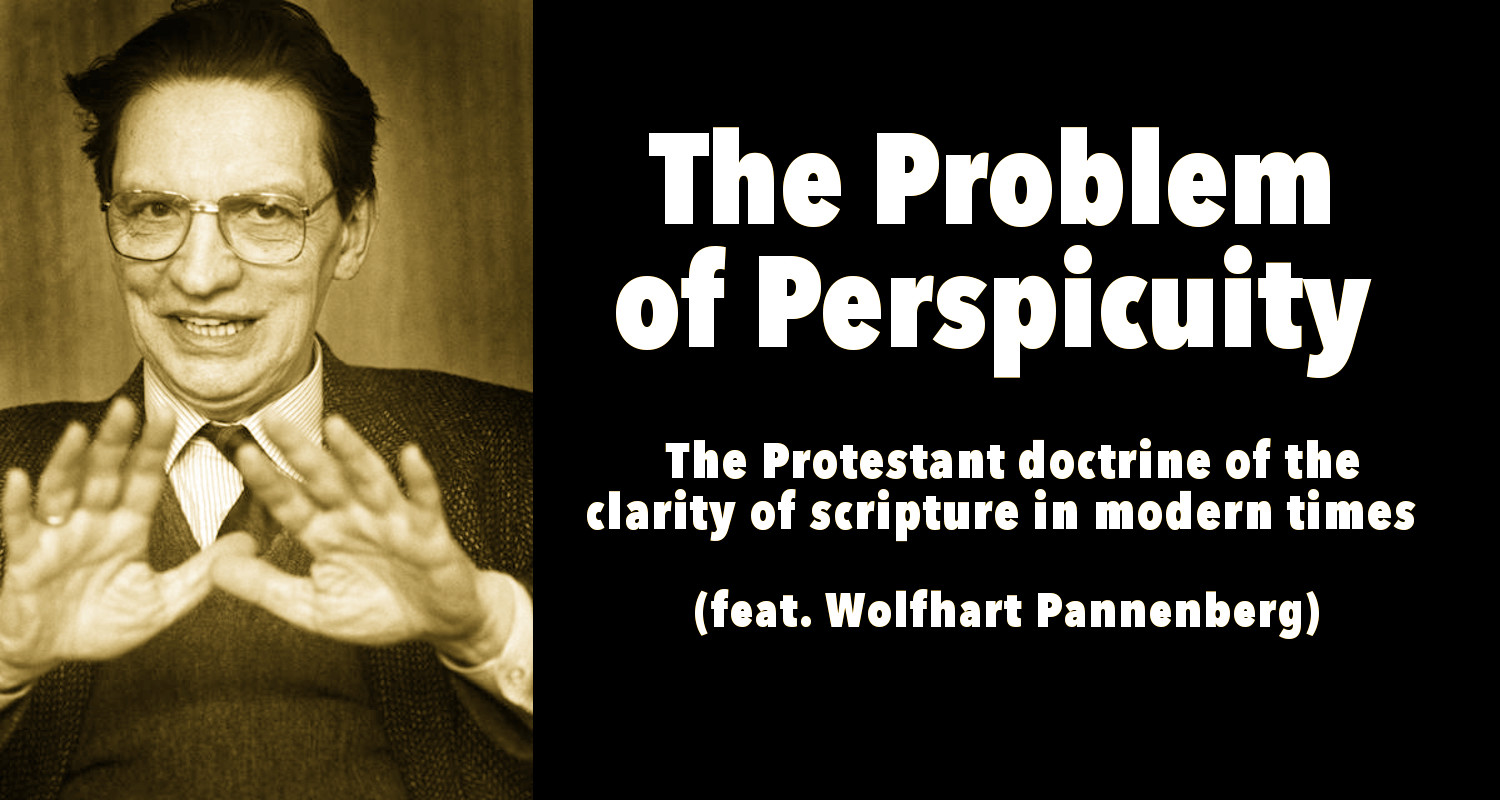
Martin Luther opened pandora's box when he argued that the clarity of Scripture may be understood apart from the teaching office of the Roman Catholic Church. According to tradition, Martin Luther declared in self-defense "Here I Stand!" at the Diet of Worms (1521) and said he could not be dissuaded from his theological conclusions "unless I am convinced by Scripture and plain reason." Luther's assertion that truth may be known directly from the Scriptures in conjunction with reason and without the authoritarian blessing of the church is known as the doctrine of the perspicuity of scripture.
Traditionally, the perspicuity of scripture does not mean that each and every verse of the Holy Scriptures may be understood with plain reason, and even the Westminster Confession of Faith says "All things in Scripture are not alike plain in themselves, nor alike clear unto all" and cites 2 Peter 3:16. So the weakness of the perspicuity of scripture were admitted even in Reformation times.
In modern times, the doctrine of the perspicuity of scripture has lead into a self-dissolution and a crisis in the traditional doctrine of Scripture. Over centuries, and especially in a post-Bultmann age, modern theologians have studied the scriptures with plain reason, and discovered that the biblical writer's accounts of historical events disagree with historical accounts outside of the bible, and these biblical writers disagree with each other! I believe reading a modern commentary on scripture or two will demonstrate the myriad of historical problems that appear in the Bible, and that there is no easy solution to these biblical difficulties without resorting to incredible explanations.
Instead of getting into the mire of the debate, here is a quotation from Wolfhart Pannenberg's essay "Hermeneutic and Universal History" in Basic Questions in Theology (Vol 1), who is a world class Protestant theologian who admits that the Protestant doctrine of the clarity of Scripture is problematic in modern times:
The early Protestant doctrine of the clarity of Scripture, by means of which Luther made the authority of Scripture independent of interpretation by an ecclesiastical teaching office, has become problematical in modern times in two respects. For Luther and early Protestantism, the literal sense (sensus literalis) of the biblical writings passed at the same time for the historical sense (sensus historicus); and, on the other hand, his own conception of the doctrine of the Gospel (doctrina evangelii) coincided with the content of Scripture understood literally (ad litteram). Since that time, however, a gulf has opened up between the literal meaning of the biblical writings and the historical course of events to which they refer, on the one hand; and, on the other hand, the distance separating our period and any possible theology today from the time of primitive Christianity and the various theological conceptions of the New Testament witnesses can no longer be overlooked. [1]
What is the solution? I know what is not the solution: a naive biblicism that ignores Pannenberg's gulf exists.
Sources:
1. Wolfhart Pannenberg, Basic Questions in Theology (Vol 1), (Fortress Press, Philadelphia: 1970), p.97
2. Header image of pannenberg: source wikipedia.



July 6th, 2018 - 17:23
His _Basic Questions_ are excellent. Under-read.
July 7th, 2018 - 18:41
Yes I agree. I only discovered them this year.
July 17th, 2018 - 11:08
10,000 years ago people were erecting menhirs, and dolmens and cromlechs, as well as performing funeral ceremonies, and executing with marvelous skill theological murals on the walls and ceilings of their caves as well as molding and carving theological figures in clay and bone. Theology originated when primitive humans mistook natural objects and events as ‘acting subjects’ and then proceeded to give these subjects personal names. For example, the prehistoric theologian might look upon the wind as alive, even as humankinders were alive, and sometimes the wind was ‘happy’ and sometimes it was ‘angry’. F. Max Muller contended that theology began when men rationalized the forces of nature and gave those forces feelings, emotions, passions, and thoughts and names. Also see Edward B Tylor notes that dogmatics also began when cerebral human primates began to give emotional support for experiences of life and death, and their experiencing images of dead persons in their dreams and altered states of consciousness. There was obviously something that went out of creatures when they died. That something was not like a stick or a rock, which could be touched and held, but it was like smoke, or breath. Primitive theologians theorized that human life as composed of 2 parts, physical and spiritual/soulish.
If anyone can bridge ‘the gulf’ [hermenuetically speaking] from there to us in the 21st century, the Reformers are much the same thing, just a little later.
September 1st, 2018 - 01:30
How do you know when you face an “error” in the Bible ?